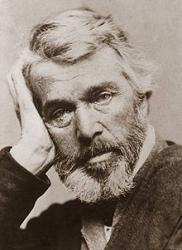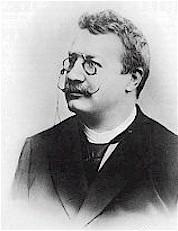Planning worship?
Check out our sister site, ZeteoSearch.org,
for 20+ additional resources related to your search.
- |
User Links
Search Results
[So here hath been dawning]
Appears in 2 hymnals Tune Key: D Major Incipit: 34565 15331 2 Used With Text: To-day
[So here hath been dawning]
So here hath been dawning
Author: Thomas Carlyle Hymnal: Jubilate Deo #352 (1900) Languages: English Tune Title: [So here hath been dawning]
So here hath been dawning
So here hath been dawning
Author: Thomas Carlyle (1795-1881) Hymnal: The Hymnal #451 (1950) Meter: 6.5.6.5 irregular Lyrics: 1 So here hath been dawning
Another blue day:
Think, wilt thou let it
Slip useless away?
Out of eternity
This new day is born;
Into eternity,
At night, will return.
2 Behold it aforetime
No eye ever did:
So soon it forever
From all eyes is hid.
Here hath been dawning
Another blue day:
Think, wilt thou let it
Slip useless away?
Amen. Topics: Children's Hymns; Discipleship and Service; Introits; Orisons Tune Title: HARDWICK
So here hath been dawning
Joseph Barnby

1838 - 1896 Composer of "GOOD SHEPHERD" in The Hymnal for Young People Joseph Barnby (b. York, England, 1838; d. London, England, 1896) An accomplished and popular choral director in England, Barnby showed his musical genius early: he was an organist and choirmaster at the age of twelve. He became organist at St. Andrews, Wells Street, London, where he developed an outstanding choral program (at times nicknamed "the Sunday Opera"). Barnby introduced annual performances of J. S. Bach's St. John Passion in St. Anne's, Soho, and directed the first performance in an English church of the St. Matthew Passion. He was also active in regional music festivals, conducted the Royal Choral Society, and composed and edited music (mainly for Novello and Company). In 1892 he was knighted by Queen Victoria. His compositions include many anthems and service music for the Anglican liturgy, as well as 246 hymn tunes (published posthumously in 1897). He edited four hymnals, including The Hymnary (1872) and The Congregational Sunday School Hymnal (1891), and coedited The Cathedral Psalter (1873).
Bert Polman
Joseph Barnby
Thomas Carlyle

1795 - 1881 Author of "So here hath been dawning" in The Smaller Hymnal Thomas Carlyle (4 December 1795 – 5 February 1881) was a Scottish satirical writer, essayist, historian and teacher during the Victorian era. He called economics "the dismal science", wrote articles for the Edinburgh Encyclopedia, and became a controversial social commentator.
Coming from a strict Calvinist family, Carlyle was expected to become a preacher by his parents, but while at the University of Edinburgh he lost his Christian faith. Calvinist values, however, remained with him throughout his life. His combination of a religious temperament with loss of faith in traditional Christianity, made Carlyle's work appealing to many Victorians who were grappling with scientific and political changes that threatened the traditional social order. He brought a trenchant style to his social and political criticism and a complex literary style to works such as The French Revolution: A History (1837). Dickens used Carlyle's work as a primary source for the events of the French Revolution in his novel A Tale of Two Cities.
--en.wikipedia.org
========================
Carlyle, Thomas, the Essayist and Historian, is known to hymnody solely through his translation of Luther's "Ein feste Burg," q.v. He was born near Ecclefechan, Dumfriesshire, Dec. 4, 1795, and died at Chelsea, Feb. 5, 1881.
--John Julian, Dictionary of Hymnology (1907)
Thomas Carlyle
Thomas Koschat

1845 - 1914 Composer of "WORKADAY" in The Smaller Hymnal Thomas Koschat Austria 1845-1914. Born at Viktring, Austria, he studied chemistry in Vienna (1865-67). A Roman Catholic, in 1866 he joined the Vienna State Opera and sang bass in the Hofoper (court opera) Choir, and eventually became choir director. In 1874 he joined the choir at St. Stephen’s Cathedral. In 1877 he joined the Hofmusikkapelle (choir) and served as a soloist there. From 1877-1906 he founded and sang with the Koschat Quintet, touring Europe and America extensively. He was well-known for his ‘Karntnerlider’ Carinthian folk songs. Emperor Wilhelm awarded him the ‘Adler Order of the Red Eagle’. He wrote several books and also published a book of poems in the Carinthian dialect. He died in Vienna, Austria. He was a musician, author, composer, librettist, adapter, and contributor.
John Perry
Thomas Koschat


 My Starred Hymns
My Starred Hymns

